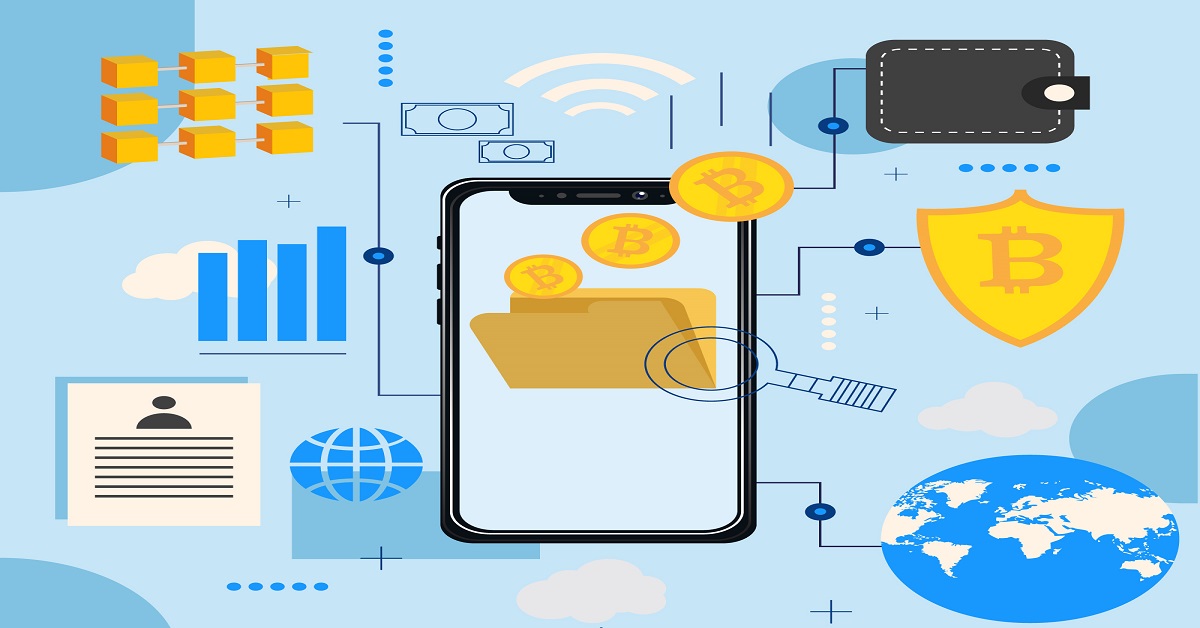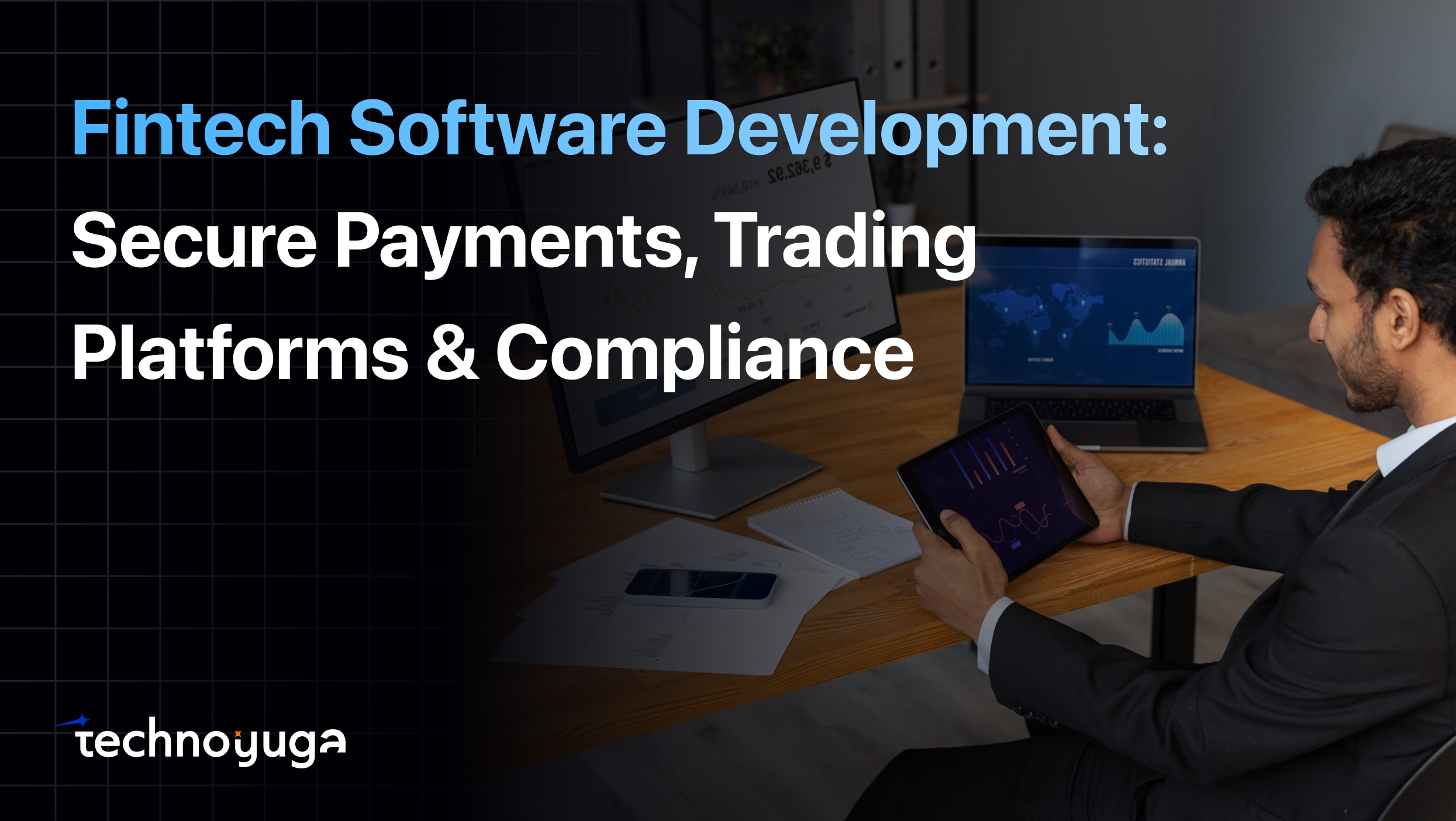In today’s rapidly evolving digital economy, cryptocurrencies have emerged as a dominant force, reshaping how we transact, invest, and store value. With the rise of diverse digital assets, the demand for secure and user-friendly multi-currency crypto wallet development has skyrocketed. Businesses and entrepreneurs are increasingly exploring cryptocurrency wallet app development to cater to users who seek a convenient and reliable way to manage multiple cryptocurrencies in one place.
If you’re wondering how to create a multi-currency crypto wallet, this comprehensive guide will walk you through every step of the process—from planning to deployment. A multi-crypto wallet app allows users to store, send, receive, and exchange various cryptocurrencies like Bitcoin, Ethereum, USDT, and more, all from a single interface. It’s no surprise that some of the best multi-currency cryptocurrency wallets in the market today prioritize security, seamless user experience, and support for multiple blockchain networks.
Whether you’re a startup or an enterprise looking to build your own wallet, partnering with a skilled crypto development company or a trusted cryptocurrency wallet development company can help ensure your product stands out. This blog will also explore essential aspects like features of a multi-currency crypto wallet, how to ensure secure multi-crypto wallet app development, and the estimated cryptocurrency wallet development cost.
As a leading blockchain development company or mobile app development company, your role is to provide robust, scalable, and secure solutions. With increasing competition in the Web3 space, offering end-to-end blockchain wallet development, integrating cutting-edge features, and maintaining compliance are critical. If you’re planning to enter this market, understanding how to build a multi-currency crypto wallet app with the right tech stack, security layers, and UX design is essential.
By the end of this blog, you’ll gain a complete understanding of how to develop a secure cryptocurrency wallet, the role of a professional blockchain app development company, the expected blockchain app development cost, and why it’s crucial to hire dedicated developers with proven experience in cryptocurrency wallet development and blockchain development.
What is a Multi-Currency Crypto Wallet?
A multi-currency crypto wallet is a digital wallet that allows users to store, send, receive, and manage different types of cryptocurrencies—like Bitcoin, Ethereum, Litecoin, BNB, and stablecoins—all within a single application. Unlike single-coin wallets, a multi-crypto wallet app is designed to support multiple blockchain networks, making it more versatile and convenient for users who deal with various digital assets.
From an industry perspective, multi-currency crypto wallet development is becoming essential as more users diversify their crypto portfolios. Whether you’re holding popular coins or niche tokens, a wallet that supports multiple currencies simplifies the experience by eliminating the need for multiple apps.
For businesses, investing in cryptocurrency wallet app development means staying relevant in a competitive market. It’s no longer enough to build a basic wallet. The demand is for high-performance, secure, and scalable solutions. That’s were partnering with an experienced cryptocurrency wallet development company, or a professional blockchain development company becomes critical.
A good multi-currency crypto wallet typically includes features like private key management, real-time price tracking, in-app swaps, and secure authentication. These aren’t optional anymore—they’re expected. If you’re exploring how to create a multi-currency crypto wallet, you need to prioritize user experience, security, and cross-chain compatibility right from the start.
With the right crypto wallet development services, businesses can build wallets that rival the best multi-currency cryptocurrency wallets already in the market. And with increasing concerns about digital security, focusing on secure multi-crypto wallet app development is not just recommended—it’s necessary.
Choosing to develop a multi-chain wallet also raises questions around compliance, scalability, and integration. This is where working with a reliable blockchain app development company or deciding to hire dedicated developers who understand both mobile and blockchain ecosystems can make a real difference.
If you’re in the planning phase and looking at the potential cryptocurrency wallet development cost, know that your investment depends on the complexity, supported currencies, features, and how robust you want the security and backend infrastructure to be. A professional mobile app development company that specializes in blockchain wallet development can guide you with accurate timelines, budgets, and the right tech stack.
In short, a multi-currency crypto wallet isn’t just another app—it’s an essential tool for the modern crypto user and a smart business move for companies aiming to innovate in Web3.
Key Features of a Multi-Currency Crypto Wallet App
1. Multi-Currency Support
A core element of multi-currency crypto wallet development is seamless support for a wide range of cryptocurrencies—Bitcoin, Ethereum, BNB, Solana, USDT, and beyond. A solid cryptocurrency wallet app development approach must ensure the wallet can handle various blockchain protocols, token standards (ERC-20, BEP-20, etc.), and scaling updates.
The best multi-crypto wallet apps don’t just display balances—they provide real-time syncing, conversion rates, and transaction compatibility for each coin. If you’re wondering how to build a multi-currency crypto wallet app, it starts with flexible architecture. Working with a professional blockchain development company ensures smooth integration with multiple chains and scalability as new assets emerge.
2. User-Centric UI/UX Design
A great multi-crypto wallet app should be intuitive, minimalist, and functional—especially when dealing with real money. Visual clutter or a steep learning curve can turn users away. From onboarding and wallet setup to sending tokens or tracking portfolio performance, the design should be seamless.
Whether you’re hiring a cryptocurrency wallet development company or a mobile app development company, focus on providing an experience that prioritizes speed, accessibility, and ease of use. When investing in cryptocurrency wallet development, design is not a luxury—it’s a necessity. Custom icons, dark/light modes, and easy QR scanning are all must-haves for today’s crypto-savvy audience.
3. Security & Encryption
Security isn’t optional in secure multi-crypto wallet app development—it’s the backbone. End-to-end encryption, biometric authentication, 2FA, and encrypted private key storage are all essential features. For non-custodial wallets, implementing BIP39 seed phrases and hardware wallet support adds layers of protection. Blockchain inherently offers decentralized security, but app-level security is your responsibility.
A good blockchain development company will perform regular audits, vulnerability tests, and security patches. Whether you’re learning how to develop a secure cryptocurrency wallet or planning your next app with a blockchain app development company, remember: trust is built on tight code and airtight security measures.
4. In-App Crypto Swapping & Exchange Integration
Today’s users expect their wallet to do more than store coins—they want functionality. That’s where in-app swapping and DEX integration come in. A quality multi-currency crypto wallet should allow token swaps within the app using decentralized exchange protocols like Uniswap, PancakeSwap, or 1 inch. This turns your app into a one-stop financial hub.
Integrating this feature requires advanced blockchain wallet development capabilities and real-time blockchain syncing. Whether using APIs or native smart contract interaction, this increases user retention and app engagement. If you’re seeking crypto wallet development services, make sure the provider knows how to implement seamless, secure, low-fee swap functionalities.
5. Wallet Backup and Recovery
No matter how user-friendly or secure a wallet is, if a user loses access and can’t recover their funds, you’ve failed. That’s why a smart cryptocurrency wallet development strategy must include encrypted backup and recovery mechanisms. Most non-custodial wallets rely on 12 or 24-word seed phrases (BIP39), but the implementation needs to be intuitive and safe.
Auto-backup to encrypted cloud storage, device sync, or hardware wallet support can also enhance recovery options. If you’re learning how to create a multi-currency crypto wallet, this is a non-negotiable feature. Any seasoned blockchain app development company will prioritize this from day one.

6. Real-Time Price Tracking & Portfolio Management
Tracking assets in real-time with historical performance and portfolio analytics is a game-changer for users. Adding a live price tracker and portfolio dashboard to your multi-crypto wallet app makes it more than just a wallet—it becomes a crypto command center.
Users should be able to view current prices, 24-hour trends, market cap, and personal gains/losses per coin. From a cryptocurrency wallet app development standpoint, this requires integration with crypto price APIs and a solid backend. Whether you’re partnering with a cryptocurrency wallet development company or doing it in-house, it’s a vital feature that keeps users coming back.
7. Push Notifications & Transaction Alerts
A modern multi-currency crypto wallet app should keep users informed without annoying them. Well-timed push notifications and transaction alerts provide transparency and control. Whether it’s a confirmation of a completed transfer, an alert for incoming funds, or a drop in the market, smart notifications improve user experience.
When handled right by a professional blockchain app development company, this feature builds trust and keeps users engaged. Integrate it with deep linking to lead users directly to the transaction page or market section. A smooth notification system is a subtle but essential part of secure multi-crypto wallet app development.
8. QR Code Scanner for Payments
Paying or receiving crypto using QR codes is a must-have in any practical multi-crypto wallet app. Instead of copying and pasting long, error-prone wallet addresses, users can scan a code and send/receive funds instantly.
This improves usability and adds a touch of professionalism to your app. Whether you’re exploring how to develop a secure cryptocurrency wallet or leading a blockchain wallet development project, QR integration is simple yet effective. A good cryptocurrency wallet development company will optimize it for both Android and iOS using native libraries or Flutter/React Native plugins for high performance and security.
Which Tech Stack Required to Create a Multi-Currency Crypto Wallet App
Creating a secure, scalable, and user-friendly multi-currency crypto wallet app involves choosing the right combination of tools, frameworks, and third-party services. Whether you’re working with a crypto development company, or planning to hire dedicated developers, here’s the tech stack you’ll need for successful cryptocurrency wallet app development:
1. Frontend (Mobile App Interface)
The frontend is what users interact with, so it must be clean, fast, and secure.
Frameworks:
- Flutter (for cross-platform apps – Android & iOS)
- React Native (ideal for performance and faster time-to-market)
Languages:
- Dart (for Flutter)
- JavaScript/TypeScript (for React Native)
UI Libraries & SDKs:
- WalletConnect SDK
- Trust Wallet Core
- Web3Modal (for DeFi wallet connection)
Working with a specialized mobile app development company ensures frontend performance and native integration for camera, biometrics, QR scanning, etc.
2. Backend (Server-Side & API Layer)
Handles user data, wallet logic, authentication, and blockchain communication.
Languages & Frameworks:
- Node.js, Python (Django/FastAPI), or Go for performance-heavy applications
- Express.js (with Node.js) for REST APIs
- GraphQL (optional) for efficient client-server communication
Authentication & Security:
- JWT for session handling
- OAuth2 for third-party logins
- Firebase Auth (for fast onboarding)
A good blockchain development company will create a secure backend using best practices like encryption, rate limiting, and API gateway protection.
3. Blockchain Integration
Vital for connecting your wallet to multiple networks.
Libraries & SDKs:
- Web3.js / Ethers.js (Ethereum and EVM chains)
- BitcoinJS (for Bitcoin integration)
- Solana Web3 SDK (for Solana support)
- Binance Chain SDK, TronWeb, Cosmos SDK, etc.
Node Providers & APIs:
- Infura, Alchemy, QuickNode, or Moralis – for fast access to blockchain data
- Chainlink – for live price feeds and oracle integration
- BlockCypher – for Bitcoin, Litecoin, and Dash APIs
A capable cryptocurrency wallet development company will know which combination of SDKs and nodes are optimal based on coin support and performance needs.
4. Database & Storage
Securely storing metadata, preferences, and off-chain transaction history.
Databases:
- MongoDB (NoSQL – good for flexibility)
- PostgreSQL (SQL – great for complex relationships)
- Firebase Realtime DB (for fast syncing in MVPs)
Storage:
- IPFS (for decentralized asset storage like NFTs)
- AWS S3, Google Cloud Storage (for backups and encrypted storage)
A reliable blockchain app development company will ensure GDPR and data security compliance across all storage layers
5. Wallet Functionality
Core functions like private key generation, encryption, transaction signing.
Key Management:
- BIP32/BIP39/BIP44 for HD wallet support and mnemonic generation
- Elliptic Curve Cryptography (ECC) for wallet address creation
- HSM (Hardware Security Module) integration for enterprise-grade security
Encryption:
- AES-256 and SHA-256 for local data protection
- Secure Enclave (iOS) and Keystore (Android) for private key storage
These are non-negotiable for secure multi-crypto wallet app development and should be a top priority for any cryptocurrency wallet development plan.
6. DevOps & Hosting
Where and how your backend infrastructure runs.
Hosting Services:
-
- AWS, Google Cloud, Azure
- Heroku or Vercel for quick deployments
CI/CD Tools:
-
- GitHub Actions, Bitbucket Pipelines, or GitLab CI for automated testing and deployment
Monitoring & Logs:
-
- Sentry, Datadog, Prometheus + Grafana
Cloud costs and infrastructure design are major components of your cryptocurrency wallet development cost. Choose your stack wisely to avoid scaling issues later.
7. Additional Tools & APIs
- Currency conversion APIs (CoinGecko, CoinMarketCap)
- Push Notifications: Firebase Cloud Messaging (FCM), OneSignal
- Analytics: Mixpanel, Google Analytics for Firebase
- Crash Reporting: Crashlytics
Steps To Develop Create a Multi-Currency Crypto Wallet App
1. Define Your Product Vision and Use Case
Before jumping into development, clearly define the purpose of your multi-currency crypto wallet development project. Are you building a simple wallet for sending and receiving crypto, or a full-featured multi-crypto wallet app with in-app swaps, staking, and portfolio tracking? Identify your target audience and support cryptocurrencies. This clarity will help you communicate better with your cryptocurrency wallet development company or blockchain development company.
Also, consider the regulatory requirements of the regions you plan to operate in, especially if you’re developing a custodial wallet. A solid foundation will guide the design, features, and roadmap of your wallet.
2. Choose the Right Development Partner
Partnering with a trusted crypto development company or blockchain app development company is crucial. Look for a team that specializes in cryptocurrency wallet development and has proven experience building scalable and secure solutions.
Whether you need custom backend logic, cross-chain compatibility, or advanced security integrations, your development partner should handle it end-to-end. If you’re unsure about long-term hiring, consider hire dedicated developers on a project basis to reduce cost while maintaining flexibility. Check portfolios, testimonials, and tech stack knowledge before signing. A skilled partner will also guide you through timelines, budgeting, and the actual cryptocurrency wallet development cost.
3. UI/UX Design with a Focus on Security and Simplicity
User experience is at the heart of successful multi-currency crypto wallet development. Design an interface that’s easy to navigate, even for non-technical users. The wallet should allow smooth access to multiple assets, real-time balances, and intuitive navigation.
Keep the onboarding process seamless—secure but not complex. Security design patterns like biometric authentication, PIN access, and encrypted private key storage must be embedded early. Collaborate closely with your mobile app development company to ensure the wallet is responsive, lightweight, and functional across devices. Visual clarity and simplicity drive trust and adoption, especially in a crowded cryptocurrency wallet app development market.
4. Backend Architecture and Blockchain Integration
Building a reliable backend is key to your blockchain wallet development success. The backend should manage user accounts (non-custodially or custodially), transaction histories, and node communication. Integration with major blockchains like Bitcoin, Ethereum, BNB Chain, and others is critical for supporting a multi-crypto wallet app.
Developers use APIs like Web3.js, Ethers.js, or providers like Infura to connect with blockchain nodes. Consider integrating third-party services for enhanced speed or scalability. If you’re unsure how to manage this complexity, a seasoned blockchain development company can provide the right architecture and tools for managing high transaction volumes securely and efficiently.
5. Implement Essential Wallet Features
A feature-rich app is what sets the best multi-currency cryptocurrency wallets apart. Users expect basics like sending/receiving crypto, wallet backup via seed phrase, and transaction history. But to compete, your secure multi-crypto wallet app development should also include in-app exchange, price tracking, QR code scanning, dark/light themes, and fiat on-ramp options. Push notifications and user analytics further enrich the experience.
Your cryptocurrency wallet development roadmap should be aligned with user demand and scalability plans. Each added feature brings cost and complexity, so work with a competent blockchain app development company to plan features strategically.
6. Secure the Wallet with Advanced Protocols
Security isn’t a feature—it’s a necessity. From day one of cryptocurrency wallet development, prioritize best practices like AES encryption, secure key storage, and end-to-end encryption for transactions. If you’re offering custodial services, consider HSMs (Hardware Security Modules) and KYC/AML integrations.
For non-custodial wallets, use BIP39 for seed generation and securely handle private keys. Conduct multiple rounds of security audits and penetration testing. A professional cryptocurrency wallet development company or blockchain development company will help you implement robust protection against phishing, replay attacks, and data leaks. Secure design leads to trust, which directly affects adoption rates.
7. Test the App Across Devices and Conditions
Before releasing your multi-currency crypto wallet app, rigorous testing is non-negotiable. Start with unit and integration tests for blockchain functions, user authentication, and transaction flows. Then, test across Android, iOS, and web platforms to ensure consistent performance.
QA should simulate different network conditions and edge cases. Test backups, recovery processes, QR scanning, and real-time transaction handling. Partnering with a professional mobile app development company ensures access to tools for automated testing and performance monitoring. Make sure that test environments include mainnet and testnet usage for various chains, enabling you to evaluate reliability under real-world conditions.
8. Launch and Monitor the Wallet
With development and testing complete, it’s time to launch your multi-crypto wallet app. Publish the app on the App Store and Google Play, ensuring all compliance guidelines are met. Use analytics to track user behavior and identify issues early. Promote your wallet through crypto forums, influencer marketing, and affiliate campaigns. A reliable blockchain development company will support you post-launch with bug fixes, updates, and scaling solutions.
Keep a close eye on user feedback, app performance, and security reports. Regular updates and community engagement are essential to stay competitive among the best multi-currency cryptocurrency wallets in the market.
9. Estimate and Manage Development Cost
The cryptocurrency wallet development cost varies based on features, platforms, security requirements, and whether it’s custodial or non-custodial. A basic wallet with core features may cost between $20,000–$50,000, while advanced wallets can go well beyond $100K.
If you partner with an offshore blockchain development company or cryptocurrency wallet development company, you can optimize costs without compromising quality. Include post-launch maintenance, compliance, and third-party API costs in your budget. Knowing your blockchain app development cost in advance helps manage ROI expectations and allows you to plan for marketing, scaling, and hiring.
Conclusion
Developing a secure and scalable multi-currency crypto wallet app is a strategic move in today’s crypto-driven world. With the right vision, expert guidance from a reliable cryptocurrency wallet development company, and robust tech infrastructure, you can build a wallet that stands among the best multi-currency cryptocurrency wallets in the market. Whether you’re a startup or enterprise, investing in quality crypto wallet development services ensures long-term success.
Don’t underestimate the importance of partnering with a trusted blockchain development company and choosing to hire dedicated developers with real Web3 experience. Plan smart, execute securely, and grow confidently in the decentralized future.
FAQs
1. What is a multi-currency crypto wallet?
A multi-currency crypto wallet is a digital application that allows users to store, manage, and transact with multiple cryptocurrencies in one place. It supports popular coins like Bitcoin, Ethereum, and others securely and conveniently.
2. How much does cryptocurrency wallet development cost?
The cryptocurrency wallet development cost depends on features, platform (iOS, Android, Web), and security layers. A basic app may cost $20,000–$50,000, while a full-featured wallet with advanced blockchain integrations can exceed $100,000.
3. Which company provides the best crypto wallet development services?
A top cryptocurrency wallet development company should offer end-to-end solutions, including UI/UX, blockchain integration, smart contracts, and post-launch support. Look for a trusted blockchain app development company with a strong portfolio and skilled development team.
4. How long does it take to develop a multi-crypto wallet app?
On average, it takes 3 to 6 months to build a multi-crypto wallet app, depending on complexity, supported blockchains, and features. Working with a skilled crypto development company ensures timely delivery with high code quality.
5. Is it better to hire dedicated developers for wallet development?
Yes. When you hire dedicated developers, you gain focused attention, faster iterations, and flexibility. It’s a cost-effective option for startups and companies looking to build secure, high-performing wallets without the overhead of full-time hiring.







